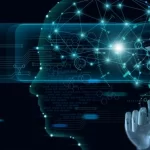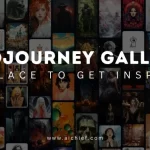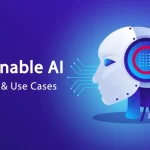AI is taking over the entire world. Ranging from blog posts to videos and pictures, people are using AI tools to create content. Similarly, people are using tools like Stable Diffusion and DALL-E to make their own pictures. They are available on the internet, and the AI-generated pictures cam be challenging to identify.
In fact, AI images have caused many trends. For instance, someone created a Pope’s picture in a white puffer jacket while some broke the news that Trump has been arrested. All these pictures surfaced on the internet and caused a frenzy. However, they were all AI-generated pictures. While they were funny, we need to understand that they can cause harm and propaganda as well.
That’s the reason people are wondering how they can detect AI-created images. They look at a picture and wonder, “Is this AI-generated?” If you need to detect the images, this article will provide a guide on how to detect AI-created images!
10 Common Signs of AI-Generated Images
While using an AI image detector is the first possible solution, these tools aren’t always accurate. In most cases, the detection tools flag human-created images as AI-generated. This is why it’s vital to have proper understanding of symptoms of AI-generated images. Some of these signs include the following.
Finger Shape
AI picture-generation tools aren’t great at making hands. In most cases, there will be six or seven fingers rather than five. In addition, they usually skip the thumb or a joint. There is also a possibility of extra veiny palms. In some pictures, the fingers blend together. This is because when you generate pictures with AI tools, hands are a minute part of the human body.
In addition, AI tools have training on limited data. As a result, the image generation tools don’t understand the hands-related requirements. However, as a human, it will be easier to look at hands and spot the AI work.
Recently, Midjourney launched a software update that managed to generate realistic hands. However, it still adds a sixth finger to the hands.
Hair
The second way to detect AI-created images is to look at the hair. That’s because AI cannot create individual hair. As a result, there will be a lot of blurred sections on the hair. In addition, the hair texture will be too smooth, and the details will be excessively sharp. In simpler words, you should look for inconsistency in the hair texture.
Secondly, you should look for impossibilities. For instance, if the pony is flying too high or has a weird loop, it’s a giveaway that the image is AI-generated. In some cases, the head is covered with a scarf as well.
Blurry Background
It’s common for AI generation tools to blur the image’s background. It does it to blur the details. So, if the picture has a fully blurry background, the picture might be AI-generated.
Secondly, if the background is detailed, focus on the architecture. There will be curved walls, misaligned stairs, and sloped ceilings. In addition, if there is a table, it will have more than four legs. Another giveaway is the light fixture. To illustrate, the chandeliers will be too huge, or the hanging lamps won’t have the right sequence. Lastly, if the background has a crowd, look for people with three eyes and a missing arm or leg.
Mistakes in Accessories
In real pictures, the accessories are always the right size, and they don’t look odd. However, in AI images, the accessories will be oddly placed. You’ve to look at the shirt buttons, scarves, necklaces, collars, and earrings. For instance, the earrings might not be the same size, and the jewelry will be warped.
Also, in some cases, the necklace will be too tight. If someone is wearing a watch in the picture, it won’t have the needle or the watch face will be blurred.
Lastly, you’ve to look at the hand-held objects. This is because AI tools cannot work with hands, so the pens and coffee mugs won’t seem realistic.
Overly Sharp Details
Many people think that only smooth texture is the way to detect AI-created images. However, extremely sharp details and rendered appearances are also a sign. In most cases, the pictures look cartoon-like, and they don’t look realistic. For instance, the foreground will be smooth and crisp at the same time.
Messed Up Details
AI tools usually mess up the small details. For instance, rings will be in the wrong fingers, and architecture won’t make sense. In addition to this, you’ve to look at the eyes, teeth, and ears. In addition, have a look at the tools, such as scissors. In fact, we recommend treating the picture as a spot-the-changes game, and you will find some elements.
Jumbled Text
While you use these tools to create pictures, they can also mess up the text. In particular, the word combination will be odd. So, if there are street signs or posters in the picture, the text will look alien. In addition, there will be hidden text in the background.
Look for the Watermark
Another way to detect AI-created images from DALL-E is to look for the watermark. That’s because this tool adds a watermark to every picture it creates. You must look for a watermark in the corner (lower one) of the images. However, many people use paid software to remove the watermark, so beware.
Stereotypical Issues
If you are still wondering how to spot AI art, remember that AI tools will remix the existing data. For instance, the pictures will have classism, racism, and sexism. Similarly, if you ask an AI tool to create a picture of an engineer, it will create a man with a yellow helmet and dirt marks. In addition to these details, the lighting conditioners will be similar.
Check the Image Source
One of the best ways to detect AI-created images is to check the image source through Google Lens. Some other options include Yandex and Tineye. If these tools cannot find the source, it’s likely that the image is AI-generated.
It’s Hard to Detect AI-Created Images – Why Is It?
AI tools skim through mountains of data for training purposes, including photos and text. This data works as an inspiration to generate new images and text. These tools are designed to reach human-like fluency and are achieving the goal. According to research, fake news was believed by users 66% of the time.
Many companies try to build detection systems, but they aren’t able to match the progress of AI. This is because whenever an advanced AI tool is released, the results become more sophisticated. So, that’s why it’s hard to determine the authenticity.
For instance, people resize the image to bypass the AI checks. In fact, the detection tools cannot detect even when AI tools tweak the details or edit them.
Importance of Creating Reliable AI Detection Tools
The AI chatbots, such as ChatGPT and DALL-E 2, are widely used. They are helping people make fake articles, pictures, and news within a few minutes. While many use it for fun, there is a high potential that it can be weaponized. For instance, people might use it for spreading false news and creating conspiracy theories.
Having said that, there is a need for reliable AI detection tools so you can get rid of false positives. For instance, writers are being accused of using AI to write articles and blog posts even when they didn’t. Therefore, there’s a need for reliable tools.
Top 3 AI Detection Tools
If you want to detect AI-created images, using the right tools is necessary. Before we mention the tools, we want to add that AI detection tools aren’t completely foolproof. So, learn how to identify the AI-generated content manually and only take help from the tools (don’t fully depend on them).
Hugging Face
This is a free and popular tool to check the authenticity of the pictures. You’ve to upload the image, and it will share if the image is produced by humans or machines. It is trained with human and artificial images. So, if the AI creation tools keep improving, the effectiveness of the tool will reduce.
However, when we checked some images generated by AI, it still showed 60% human. It shows that the detection will not always be correct.
Hive AI Detector
If you are still wondering how to identify AI art, downloading the Hive AI Detector is another option. It’s a Google Chrome extension that shares the percentage of human and artificial content. It’s extremely particular as it shows which parts of the images are AI-generated. This tool is recommended by PCWorld and The Wall Street Journal, so it’s pretty legit.
Illuminarty
This tool is suitable for detecting art as well as text. It shows the percentage of AI content. However, the free version isn’t accurate. For this reason, you’ve to upgrade to paid plans. It uses the computer vision algorithms to check the authenticity of the images. In addition, there is a web browser extension available, making it convenient to use.
How Do AI Detectors Work?
Now that you know how to detect AI-created images, you must understand how these detectors work. Image recognition is actually a wide term that includes multiple steps to understand and process the images. Usually, there are two steps.
Object Detection
The first step is locating objects in the image. The detection tools use neural networks and vision APIs. That’s because these APIs learn from previous data, so identification is easier.
Segmentation of Images
The tools divide the images into multiple sections. For instance, it divides the water, sky, and grass. For this purpose, neural networks and computer vision techniques are used.
The image detectors use deep neural networks, which have multiple artificial neurons. There are multiple layers of these neurons that learn from data. As a result, the tools have examples of input as well as output, making detection easier.
To illustrate, the tool is trained by showing images with different labels. As a result, it learns to link the features of images with the labels. Also, the tools are trained on real as well as fake images, so they can differentiate between images.
How Accurate Are the AI Image Detection Tools?
The accuracy is always up for questioning. This is because the lighting and image resolution can change the results. For this reason, the researchers need to fine-tune the detection tools and augment the training data.
In addition to this, for the tools to detect AI-created images properly, the tools need regular updates. Also, the testing needs to be stricter. As for now, the accuracy ranges from 50% to 70%, which is a huge gap. Overall, the user reviews recommend using Hive AI Detector as it’s most accurate among all tools.
The Future of AI Image Detection Tools
It’s evident that detection tools aren’t 100% accurate. For this reason, one needs to wonder about the future of these tools. Will these tools become better as technology improves? Will it become easier to detect AI-created images without compromising on accuracy?
It’s clear that AI is getting better. This means that it will help increase creativity. In simpler words, it will assist in the creation process rather than becoming a threat to creativity. In addition, the tools will help boost creativity and productivity. Also, it will become easier to make cool art.
For instance, when calculators were launched, teachers were worried that kids would become bad at mathematics. Some also thought that it would take the fun away. In fact, this hate led to the banning of calculators. However, in the modern day, calculators are a must-have because they make calculations easier and more accurate. So, we predict that a similar thing will happen to AI.
Frequently Asked Questions
Can we detect AI-created images?
Yes, you can detect AI-created images with the help of tools. However, you shouldn’t rely on these tools completely as they aren’t 100% accurate.
Google can detect AI-generated images. Is it true?
Yes, Google has launched SynthID. It can identify the AI-generated images. In addition, it adds a watermark to the pictures if they are AI-generated.
Do AI detectors really work?
Yes, they work, but there are instances when they don’t show accurate results. In many cases, it has flagged human-generated content as AI. For this reason, the detectors work, but they aren’t reliable.
Is it illegal to use AI images?
No, it’s not illegal to use AI images. Also, these images cannot be copyrighted, which takes away the legal consequences as well.
Can ChatGPT read and analyze pictures?
Yes, the recent upgrade came with the image analysis features. It is similar to Bard, which means it can read, analyze, and create pictures.
The Bottom Line
There are many tools in the market that help detect AI-created images. However, their accuracy is up for debate because they tend to flag human-generated content as well.
Since the big names in AI, such as Google and OpenAI, are already working on advanced AI systems, the efficiency of these tools will suffer. That’s because these AI generation tools will start creating more human-like and realistic content. So, the future is pretty competitive, and AI is only going to strengthen its grip more!





